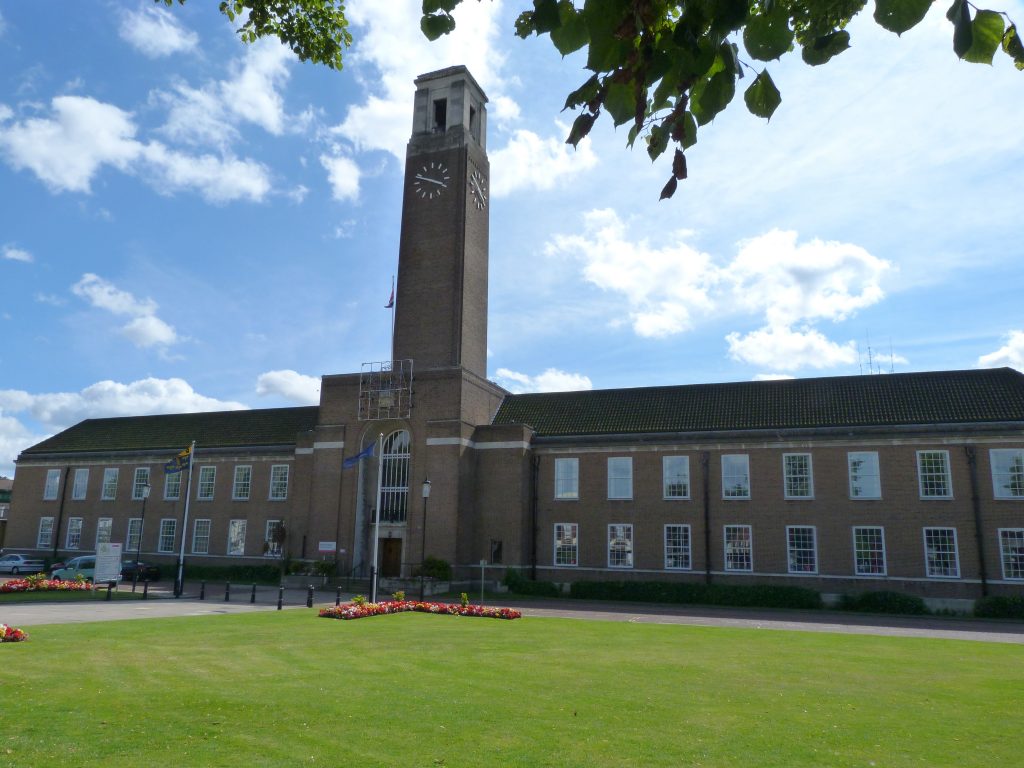
Image credit: Wikimedia Commons
Austerity has cost Salford residents £651 per person in real terms, as the council’s funding dropped by 31 per cent in the past decade, a new report has revealed.
The Cities’ Outlook 2019, a report issued by the independent think-tank Centre for Cities, looked at the impact of a decade of austerity on local government funding.
Austerity is the reduction in government spending to bring down the amount the public sector borrows. This policy has been in place since 2010, when it was introduced by the Conservative-Liberal Democrat coalition to help Britain’s economy recover after the 2008 financial crash.
City councils rely on a range of sources for funding, mostly central government grants, but also council tax and paid-for services. Councils with poorer populations cannot raise much from council tax so they rely mostly on central government money.
The report found that the cities least equipped to absorb the loss of central government grant have been hardest hit due to their weaker local economies.
Robert Sharpe, Labour councillor for Little Hulton, said that these cuts have come at a time when money is needed most:
“Inflation adds more financial pressure year on year on top of the cuts. We have additional budget pressures as we have an ageing population which requires a greater amount of care provision which of course costs money.”

The report highlights that cities are spending greater proportions of their budgets on social care, which is adding to the squeeze on their finances.
Cllr Sharpe added: “I don’t think anyone would complain that we need to give the high quality care to people with disabilities and those who need to be protected. But when the care costs are rising and the overall budgets of councils are reducing it is no surprise we see libraries closing, moves towards 3 and 4 weekly bin collections, library and community centre closures across the country, and a reduction in youth workers and other services.
“It’s quite easy to blame the council for these decisions but when this is happening across councils right across the country there is only the government to blame.”
Bryan Blears, Green Party Parliamentary Candidate for Salford and Eccles, called for the council to find alternative solutions to bridge the gap in funding.
He said: “As a city we need to make better use of the resources we have. This includes our land, which, in my view, has been sold off too cheaply to developers and private investors who have given too little back to our city. One solution is to make better use of legislation which already exists to raise revenue for local transport infrastructure, parks and play areas.
“But we also need to start thinking outside the box – such as looking at freeing people of irrecoverable debts by offering them voluntary work, making better use of community service, or only allowing homes to be built for private rent providing they come into public ownership after a fixed number of years.”
He added: “Due to the current impasse in national politics it is unfortunately possible that austerity may be around for some time to come. It is therefore vitally important that we all come together to address the gaps in funding and ensure our city is not left behind.”
Cities in the north of England were much harder hit than those elsewhere in Britain: on average northern cities saw a cut of 20 per cent to their spending, but the average cut was 9 per cent for cities in the East, South East and South West (excluding London).
In Greater Manchester generally, the cuts represent a loss of £324 per person, or a fall in local government spending of 17 per cent.
Andrew Carter, Centre for Cities Chief Executive, said: “Cities Outlook 2019 shows that the cities most affected are economically weaker and have been less able to absorb the loss of central government funding.
“Manchester’s councils have managed as best they can but the continued singling-out of local government for cuts cannot continue. There is a very real risk that many of our largest councils will in the near future become little more than social care providers. Fairer funding must mean more funding for Manchester.”
















Recent Comments